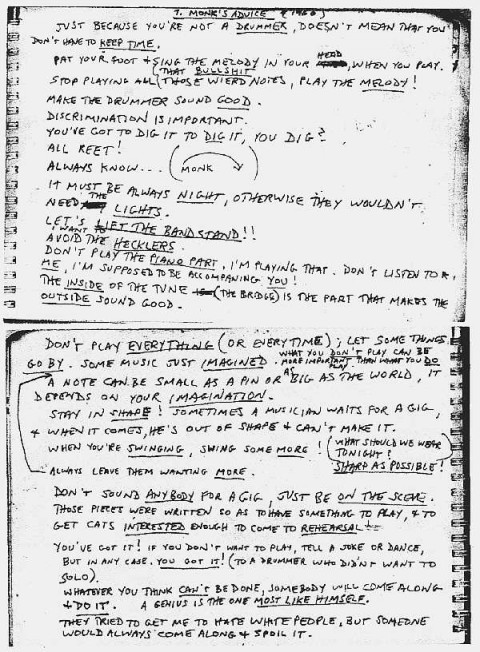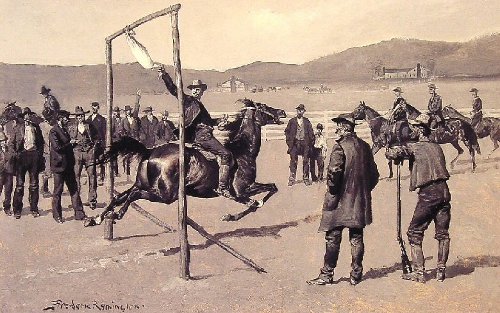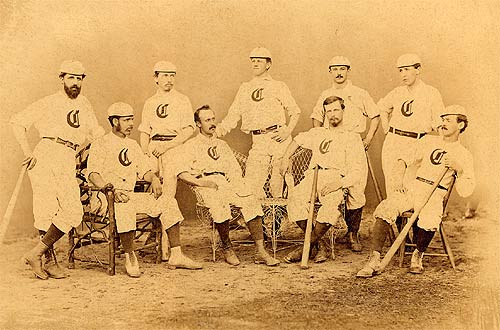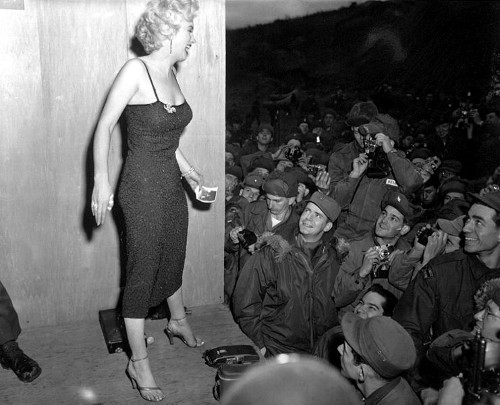- A TOYOTA’S A TOYOTA is a palindrome.
- Lee Trevino was struck by lightning in 1975.
- KILIMANJARO contains IJKLMNO.
- 39343 = 39 + 343
- “Money often costs too much.” — Emerson
Entertainment
Monk’s Notes
Steve Lacy played soprano saxophone in Thelonious Monk’s quintet for 16 weeks in 1960. He took down the pianist’s advice in a spiral notebook:

“Monk’s tunes were ideal and difficult, and interesting, intriguing, and satisfying,” Lacy remembered later. “I started and I’ve never stopped looking into his music.”
Blood Sports

Two bygone amusements that we’re well rid of:
In fox tossing, popular in the 17th century, foxes would be released into an arena in which slings were laid between pairs of participants. If a fox crossed a sling, they would fling it into the air, usually killing or severely injuring it. The highest toss won the contest.
In goose pulling, a live goose was tied by its feet to a rope stretched over a course, and each competitor would ride under it at full speed and try to pull off its head.
“This pastime is not one to be commended on the score of humanity,” noted Baily’s Magazine of Sports & Pastimes in 1902, “but it did something to test horsemanship; the goose we may be sure did not hang in a state of resigned quietude, and if the horseman had not a good seat he ran an excellent chance of coming a heavy cropper in his attempt to seize the writhing neck.”

Another Fad

Before the existence of the association of clubs (1857), and when [baseball] was to be learned only from witnessing the practice and match games at Hoboken, the prejudice which existed against the game could scarcely be imagined. The favor with which it was regarded may be judged from the observation used by an accidental witness of a game who, after looking for a while, with unfeigned astonishment exclaimed: ‘I can’t see what fun such great, big men can find in hitting a little ball with a big stick and run away like mad, and kick at a sand bag.’
— DeWitt Baseball Guide, 1868
Dangerous Years

Arthur Miller’s first impressions of Marilyn Monroe, on the set of As Young As You Feel, 1950:
We had just arrived on a nightclub set when Marilyn, in a black open-work lace dress, was directed to walk across the floor, attracting the worn gaze of the bearded [Monty] Woolley. She was being shot from the rear to set off the swivelling of her hips, a motion fluid enough to seem comic. It was, in fact, her natural walk: her footprints on a beach would be in a straight line, the heel descending exactly before the last toeprint, throwing her pelvis into motion.
When the shot was finished she came over to [Elia] Kazan, who had met her with [agent Johnny] Hyde on another visit some time before. From where I stood, yards away, I saw her in profile against a white light, with her hair coiled atop her head; she was weeping under a veil of black lace that she lifted now and then to dab her eyes. When we shook hands the shock of her body’s motion sped through me, a sensation at odds with her sadness amid all this glamour and technology and the busy confusion of a new shot being set up. She had been weeping, she would explain later, while telling Kazan that Hyde had died calling her name in a hospital room she had been forbidden by his family to enter. She had heard him from the corridor, and had left, as always, alone.
Bird Watching
When director George Pal first came to the United States from Hungary, animator Walter Lantz helped him obtain U.S. citizenship. As a tribute to their friendship, Pal inserted Woody Woodpecker into most of his films:
- In Destination Moon (1950), a Woody Woodpecker cartoon explains the principles of space travel.
- In When Worlds Collide (1951), Woody is visible in an airport scene at the beginning of the film.
- In War of the Worlds (1953), Woody’s figure is visible among the branches of a tree as the Martian spacecraft first fly over.
- In Tom Thumb (1958), Woody’s laugh can be heard during a Russ Tamblyn dance sequence.
- In The Time Machine (1960), a little girl drops a Woody Woodpecker doll.
- In The Power (1968), George Hamilton looks in a store window and sees a mechanical Woody.
In Doc Savage (1975), Pal’s last film, the reference is subtle. No woodpeckers appear in the film, but near the end an elderly woman is helped across the street by a Boy Scout. The woman is Grace Stafford, Lantz’s wife — and the voice of Woody Woodpecker.
Turn, Turn, Turn

The hedge maze at Hampton Court has been entertaining visitors since 1695, occasionally belying its reputation for ease. In Jerome K. Jerome’s Three Men in a Boat (1889), Harris says, “We’ll just go in here, so that you can say you’ve been, but it’s very simple. It’s absurd to call it a maze.” Then, after two miles of wandering:
‘The map may be all right enough,’ said one of the party, ‘if you know whereabouts in it we are now.’
Harris didn’t know, and suggested that the best thing to do would be to go back to the entrance, and begin again. For the beginning again part of it there was not much enthusiasm; but with regard to the advisability of going back to the entrance there was complete unanimity, and so they turned, and trailed after Harris again, in the opposite direction. About ten minutes more passed, and then they found themselves in the centre.

Mazes have exercised a peculiar fascination for the mathematically minded. The young Lewis Carroll composed this one for a family magazine — the object is to make your way from the outside to the central space; it’s acceptable to pass over or under another path, but a single line means your way is blocked.

Cambridge University mathematician W.W. Rouse Ball constructed this maze in his garden. He notes that unless a loop surrounds the goal, the wanderer can defeat any maze by trailing one hand along a wall, and “no labyrinth is worthy of the name of a puzzle which can be threaded in this way.”

Hampton Court is modest in comparison to the modern hedge maze at Longleat, a stately home in Somerset. Its 16,000 English yews enclose 1.75 miles of paths that require an hour and a half to traverse; the course includes six wooden bridges from which to plot a path to the goal, an observation tower.
In solving any of these, as Harris discovered, the chief danger is overconfidence:
Said a boastful young student from Hayes,
As he entered the Hampton Court maze:
“There’s nothing in it.
I won’t be a minute.”
He’s been missing for forty-one days.
— Frank Richards
Express

Buster Keaton’s 1926 comedy The General is based on a real event. In April 1862 a group of Union volunteers hijacked a Confederate train in Georgia and led the rebels on an 88-mile, six-hour chase through the state, tearing up tracks and cutting telegraph lines as they went and releasing cars behind them to slow their pursuers. The conspirators ran out of fuel just short of Chattanooga, their goal, but the Union awarded a Medal of Honor to most of them for the exploit.
Keaton turned this into the story of Johnnie Gray, a hapless Georgia engineer who proves his mettle by chasing a stolen Confederate locomotive across Tennessee in order to rescue his beloved. The film’s central train chase is a masterpiece of mechanical slapstick, essentially a live-action cartoon showcasing the actor’s hair-raising stunts with locomotives, cannon, fire, and dynamite as the trains roll through the Southern countryside.
https://www.youtube.com/watch?v=Ytd7tKEvz2M
“I was more proud of that picture than any I ever made,” Keaton said in 1963. “Because I took an actual happening out of the … history books, and I told the story in detail, too.”
A Few Words
At the climax of the 1934 film The Black Cat, Boris Karloff recites a “black mass” over a swooning Jacqueline Wells:
Cum grano salis. Fortis cadere cedere non potest. Humanum est errare. Lupis pilum mutat, non mentem. Magna est veritas et praevalebit. Acta exteriora indicant interiora secreta. Aequam memento rebus in arduis servare mentem. Amissum quod nescitur non amittitur. Brutum fulmen. Cum grano salis. Fortis cadere cedere non potest. Fructu, non foliis arborem aestima. Insanus omnes furere credit ceteros. Quem paenitet peccasse paene est innocens.
This sounds marvelous in Karloff’s portentous baritone, but it’s weaker in translation:
With a grain of salt. A brave man may fall, but he cannot yield. To err is human. The wolf may change his skin, but not his nature. Truth is mighty, and will prevail. External actions show internal secrets. Remember when life’s path is steep to keep your mind even. The loss that is not known is no loss at all. Heavy thunder. With a grain of salt. A brave man may fall, but he cannot yield. By fruit, not by leaves, judge a tree. Every madman thinks everybody mad. Who repents from sinning is almost innocent.
He might have added Omnia dicta fortiora si dicta Latina: “Everything sounds more impressive in Latin.”
Yankee Panky
The New York Yankees saw an unusual trade in 1972: Pitchers Mike Kekich and Fritz Peterson traded families. Kekich traded his wife, Susan, two children, and a Bedlington terrier for Marilyn Peterson, the two Peterson children, and a poodle. “We didn’t trade wives, we traded lives,” Kekich said.
“They were really close, and their families were close,” remembered Yankees catcher Jake Gibbs, who had played with both men. “I guess we just didn’t know how close. Of course, they were both left-handers. You can never tell about lefties.”
The storm of attention that accompanied the trade began to erode the players’ friendship — Yankees executive Dan Topping quipped, “We may have to call off Family Day this season” — and Kekich was traded to the Indians later that year.
Marilyn Peterson and Mike Kekich eventually ended their relationship, but Fritz Peterson married Susanne Kekich in 1974 and raised four children with her.
The two friends were never close again. “All four of us had agreed in the beginning that if anyone wasn’t happy, the thing would be called off,” Kekich said. “But when Marilyn and I decided to call it off, the other couple already had gone off with each other.”
